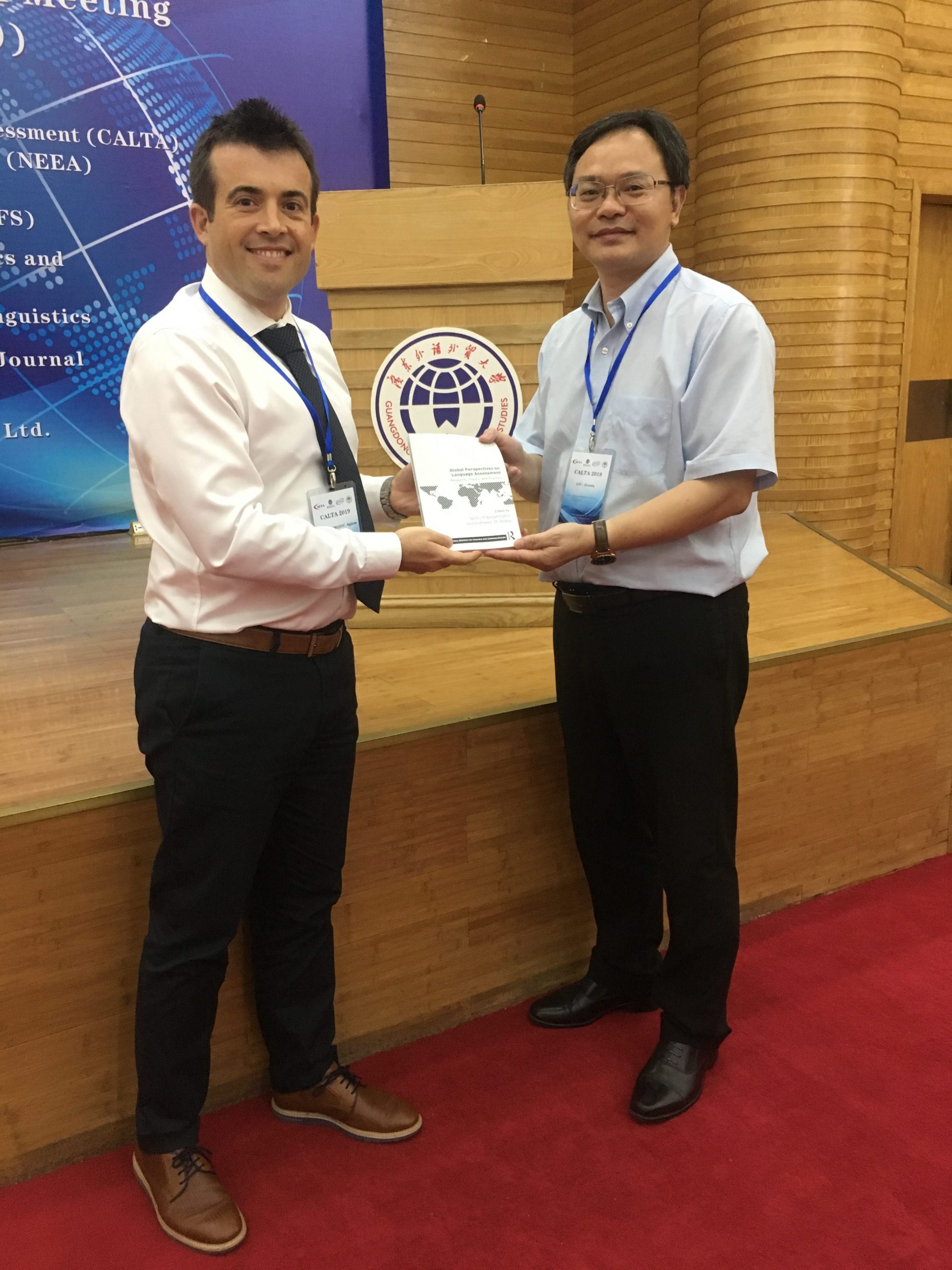
Editor’s note: In this piece, TIRF Trustee Spiros Papageorgiou, Managing Senior Research Scientist in the Center for English Language Learning and Assessment at Educational Testing Service (ETS), shares information about his activities this summer.
In early July, TIRF Trustee Spiros Papageorgiou logged his longest flight ever, from Newark airport, near New York, to Hong Kong. About 8,000 miles and 16 hours later, he also had to hop on a short flight to his final destination: Guangzhou, China. This city was where China’s National Education Examinations Authority (NEEA), Guangdong University of Foreign Studies (GDUFS), and ETS and its TOEFL® program cohosted the 5th International Conference on Language Testing and Assessment.
The International Conference on Language Testing and Assessment is an annual event in China, aiming to provide a platform for Chinese researchers, exams organizations, and policy makers to exchange ideas and views on foreign language teaching, learning, and testing. This year’s event was held on the campus of GDUFS, joining the inaugural meeting of the China Association for Language Testing and Assessment (CALTA).
The location of the conference and the inaugural meeting of CALTA was symbolic, as the first MA program in Applied Linguistics in China was launched there some 40 years earlier, in 1978. In 2010, the journal Language Assessment Quarterly hosted an interview with a GDUFS professor emeritus, Gui Shichun, who is considered by many to be the founding father of modern language testing in China. Another GDUFS professor, Liu Jianda, was elected president of CALTA during the conference.

Spiros and his ETS colleague (and former TIRF Grantee) Ching-Ni Hsieh engaged in several professional activities at the conference. These two ETS colleagues have been collaborating during the past two years with NEEA staff and researchers from various institutions in China to explore the alignment of TOEFL iBT® scores to the levels of China’s Standard of English Language Ability (CSE). The CSE and the efforts around it are aimed at promoting foreign language education in China and were of particular interest to conference attendees. Spiros and Ching-Ni conducted a one-day pre-conference workshop on the process of aligning test scores to language proficiency frameworks and standards, and presented papers on the same topic during a symposium with NEEA staff and CSE project team members.
Spiros also had the opportunity to talk to CALTA members about TIRF and its mission, and promote the TIRF-Routledge “Global Research on Teaching and Learning English” book series. The most recent book in the series, Global Perspectives on Language Assessment: Research, Theory, and Practice, co-edited by Spiros and TIRF Chair Kathi Bailey, attracted the interest of several CALTA members, as it contains chapters related to assessment in the Chinese educational context.

